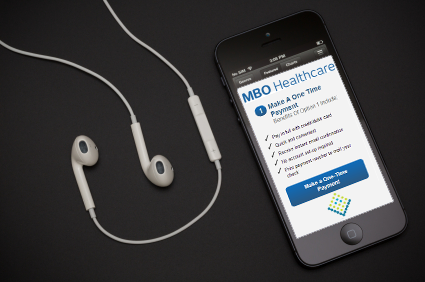As parts of the Patient Protection and Affordable Care Act begin to roll out, it's important for healthcare providers to understand that healthcare in the United States is becoming increasingly driven by performance. I've said this before in previous blog posts, but it's something that needs to be overstated. Although giving out both incentives and penalties for the quality of care that institutions provide is still a relatively new cost model; this is our future and healthcare organizations must be prepared for this new reality - which I'm sure most of you reading this agree you already are (at least, I hope!). How exactly will healthcare organizations be able to estimate the cost of care based on the value they deliver versus the quantity they provide? This is one of the most pressing questions boggling the minds of many healthcare executives, particularly those who work in the finance and accounting departments of these organizations.
Read More
Topics:
patient satisfaction,
cost protection,
Estimation
One of the biggest legal changes to the United States health care system that will have a major impact on healthcare providers is the Federal Government’s new Hospital Value-Based Purchasing Program. Regardless if you are the manager at a large hospital system, an administrator at a smaller outpatient treatment facility or a doctor that treats Medicare patients; it is important to understand that the government wants to pay medical providers according to health outcomes of patients. This change presents a huge shift in current US healthcare policy where providers were traditionally paid for their services - regardless of patient health outcomes. This new hospital-based pay-for-performance system officially began in October 2012 and will be one of Medicare’s largest improvement campaigns.
Read More
Topics:
healthcare,
Value-Based Purchasing
So, I figured I should write about RACs because they seem to be the topic of conversation at most HFMA events I attend. I am NOT an expert on this particular subject, but with research and talking to people within the industry, I found some interesting tips. A survey I read released by the American Hospital Association mentioned the requests for medical records from Medicare’s wide-sweeping Recovery Auditory Contractor (RAC) program are up over 47 percent since 2012. Therefore, there are some important things that your healthcare organization should consider when looking to reduce your RAC financial risk.
Read More
Topics:
RAC Audit,
Risk Assessment,
Compliance
Business Process Outsourcing
If you’re interested in business process outsourcing (BPO) and wondering how much you can increase revenue by doing so, take a look at the key advantages that experienced BPO companies offer. If you need to convince your company management to approve the idea of outsourcing, just present a spreadsheet outlining the costs of doing all of the below activities in-house: (or grab a copy of our Cost Savings template):
Read More
Topics:
Business Process Outsourcing,
healthcare receivable management,
Revenue Cycle Management
Outsourcing call center services can be a money saver but it can also cause the loss of valuable business and ruin patient satisfaction scores — IF you select the wrong outsourcing company. Outsourcing makes sense for many organizations because you can gain expertise in areas your organization doesn’t focus on, like patient receivables. Outsourcing call center services relieves you of training, supervision and turnover costs, allowing your core staff to focus on your core business – the patients.
Read More
Topics:
patient protection,
call centers,
call center,
patient satisfaction,
Outsourcing
The days when patients went to the doctor’s office with very little knowledge and some semblance of understanding regarding their particular ailment, diagnosis, prognosis, and treatment are loooong gone; everything the doctors said (or didn’t say) was once regarded as just the way it was and had to be. When patients left that 15-minute doctor’s visit they were armed only with the information and options that their doctor provided to them. For the doctors, the only real-time information they could provide was by drawing from what they knew from experience and then simply telling their patients that once the tests results came back, they’d be contacted.
Read More
Topics:
healthcare technology,
patient satisfaction,
hospital patient satisfaction,
healthcare receivable management,
patients
It’s a mistake to think that formalized efforts to measure hospital patient satisfaction are just another government intrusion. Programs like the Hospital Consumer Assessment of Healthcare Providers and Systems Survey can not only bring you direct financial rewards (and who doesn’t want more of that?!), they can help your organization excel in the areas of ongoing growth and profitability.
Read More
Topics:
patient satisfaction,
hospital patient satisfaction
Business Associate Agreement:
As a healthcare professional and in light of the extensive changes (that’s an understatement…) and rules established by the Department of Health and Human Services (HHS), it is critical that you take the time to review your current and entire list of third-party vendors and business associates to determine whether or not they understand and are compliant with the 2013 Health Insurance Portability and Accountability Act (HIPAA). You should start by making a comprehensive list of all the companies and individuals which you do business and who – in some way – come in any sort of contact with a patient’s Personal Health Information (PHI). It’s important that you make sure all of your business associate agreements that need to be current and in place – are.
Read More
Topics:
Business Associate Agreement,
BAA
Ugh! Remember when October 1, 2014 seemed so far off into the future? The reality is, the ICD-10 official deadline is actually now looming. You can’t afford to screw up – literally – because your bottom line is at stake.
Don’t believe it? ICD-10 is transforming how you do business, whether you’re a sole practitioner or a major hospital. It’s an infection that will certainly spread from your clinical procedures to across-the-board operations and even your organizational structure, all of which affect your financial well-being.
ICD-10 will directly affect your revenue.
Read More
Topics:
ICD-10,
ICD-10 compliance
Incase you live under a rock and don't know what ICD-10 is, well... it's the abbreviation for the 10th version of The International Classification of Disease - a universal system of coding (first created in 1983 and completed in 1992) used by physicians and other healthcare providers to classify and code all diseases, diagnoses, symptoms, abnormal findings, procedures, and external causes of injury recorded in conjunction with hospital care in the United States.
Read More
Topics:
ICD-10,
ICD-10 compliance,
Training,
reasons to prepare,
coding














